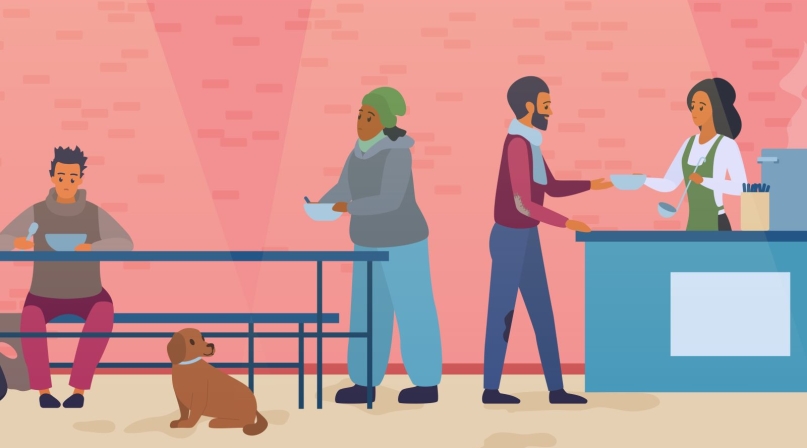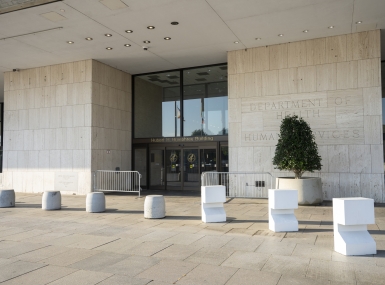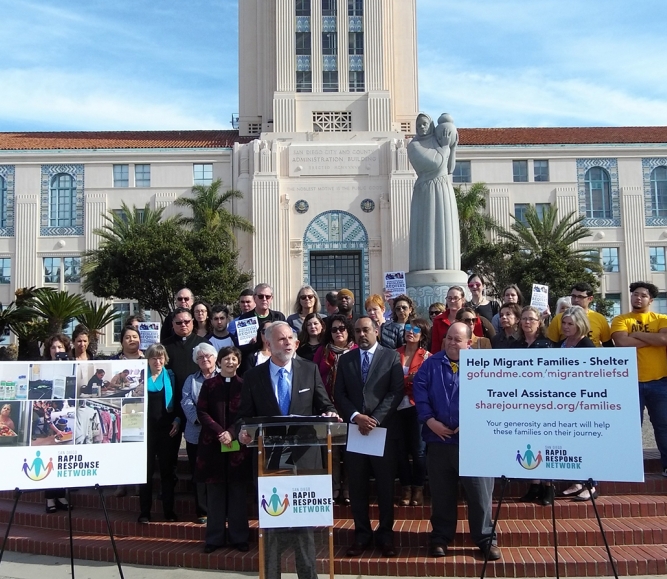Cook County creates health and social services center for asylum-seekers

Key Takeaways
Two summers ago, the city of Chicago notified Cook County Health that busloads of asylum-seekers from the U.S.-Mexico border were arriving in the city in less than 24 hours, and immediate medical response was needed.
The county health system quickly turned the unopened second floor of a clinic it had built at its Belmont Cragin location into a health center for the influx of migrants, most of whom are from Venezuela.
Learn more
Since then, the Refugee Health Center has served more than 23,000 new arrival patients, according to Craig Williams, chief administrative officer for Cook County Health.
“When we were asked to serve as the lead medical provider, we knew it was aligned with our historical mission,” Williams said.
“And we don’t dodge that, like we ran in headfirst … We’re Chicago’s biggest safety net hospital — it’s our mission to provide equitable access to all who want to receive it.”
What was initially only going to be a one-to-two-week response to the asylum-seekers’ arrival has expanded into a comprehensive health center that offers medical, dental, behavioral health, pharmacy, transportation, care coordination and social services six days a week, 12 hours a day.
“We actually looked at what the city was asking us to do, and we as a system said, ‘You know what, that’s not enough,’” Williams said.
“… The influx of new arrivals, although it subsided a little bit over the last winter, really never stopped.
“What we’ve continued to do is remain as flexible as possible, really responding to needs as they change, and to make sure we’re providing great care in the most efficient way possible so we can make the biggest impact.”
Cook County Health has added around 40 healthcare professionals to accommodate the demand at the Refugee Health Center, working with employment agencies to bring in bilingual nurses, medical assistants and providers.
Williams said the staff is dedicated to not only providing patients with healthcare, but making them feel comfortable, citing a holiday party the clinic hosted for new arrivals in December.
“We have staff that are reflective of the patients we serve and are culturally sensitive throughout our ambulatory network, but certainly within Belmont Cragin, and that staff was eager to be a part of this,” Williams said.
“Many of them have a story of immigration themselves or their immediate family members, so they understand the desire of patients to have a better life.”
Cook County Health works closely with the Chicago Department of Family and Support Services (DFSS), which runs the refugee shelters.
The health system’s care coordination team goes to shelters multiple times a week to ensure people who need care are getting it and coordinates transportation through Kaizen Health, a healthcare-logistics technology platform that partners with the driving service Lyft to provide non-emergency medical transportation, and also contracts 15-passenger vans.
The clinic also works with outside agencies and food banks to provide clothing, shoes and food to patients.
The Refugee Health Center is only accessible to migrants staying in shelters; according to Williams, that’s for record-keeping. In the spring and summer of 2023, shelters didn’t have the capacity to house all of the refugees, so people were taking up residence in police stations and weren’t able to get care.
The shelters raised capacity to address the issue, resulting in a backlog of patients for the Refugee Health Center, which led to the health system creating a series of mobile teams made up of two nurses, two administrative workers who help with registration and a virtual provider.
Since launching in December, the mobile teams have seen more than 3,200 patients on-site at roughly 10 shelters, according to Williams.
“We’ve targeted the shelters that have over 100 patients,” Williams said.
“And we stay in-shelter until we’re seeing less than 50 patients a day, because that’s really what they can see, so we don’t want them there just kind of twiddling their thumbs.”
Cook County Health’s cost to date for the new arrivals response is $37 million, according to Nick Mathiowdis, Cook County Board President Toni Preckwinkle’s press secretary.
According to Williams, the majority of the funding has gone to direct patient care costs, including vaccinations, lab tests and prescriptions.
The health system has performed roughly 3,000 surgeries, 4,000 emergency visits and 70,000 overall visits system-wide for the asylum-seekers, around one-third of whom are uninsured, according to Williams.
The finance division is working to help patients complete the Medicaid application process, he added.
In anticipation of rising costs due to more asylum-seekers flying and busing in from border states like Florida and Texas, the Cook County Board of Commissioners approved $70 million in its 2024 budget toward medical care for the thousands of new arrivals.
“One of the primary and guiding missions of Cook County is providing public health care access and services to residents, regardless of a resident’s ability to pay or citizenship status,” Mathiowdis wrote in a statement to County News.
“The pandemic has shown the need and importance of this work, especially in times of an emergency. We are committed to continuing this work.
“This new fund provides flexibility to address public health needs in an emergency situation and expands our ability to quickly address public health emergencies, something we saw a dire need for during the pandemic and now with our new arrival crisis.”
Related News

U.S. Department of Health and Human Services announces major restructuring
On March 27, the U.S. Department of Health and Human Services (HHS) announced a sweeping reorganization that will consolidate agencies, shift key programs under a new framework and eliminate thousands of positions. This change brings HHS in line with President Trump's Executive Order, “Implementing the President’s ‘Department of Government Efficiency’ Workforce Optimization Initiative.”

U.S. Department of Health and Human Services moves to reduce public comment in rulemaking
On February 28, the U.S. Department of Health and Human Services (HHS) announced a policy change limiting public comment opportunities to only those required by law. Published in the Federal Register on March 3, the decision rescinds the “Richardson Waiver,” a 1971 directive from then-HHS Secretary Elliot Richardson that encouraged broader public input on regulations related to public benefits, grants and healthcare policies.

U.S. Congress begins work on budget reconciliation process: What this means for counties
The House and Senate Budget Committees have marked up Fiscal Year (FY) 2025 budget resolutions to initiate the budget reconciliation process to enact policy priorities without garnering bipartisan support, although the two chambers differ in their approach to drafting the legislation.
County News
San Diego County OKs asylum seekers shelter

